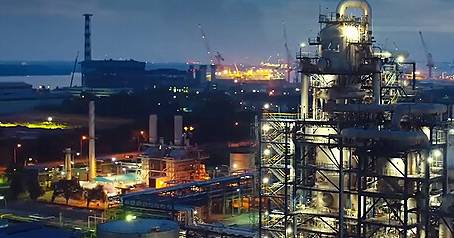Aug . 12, 2024 13:28 Back to list
Exploring the Benefits and Applications of High-Density Polyethylene Irrigation Pipes in Modern Agriculture
The Advantages of HDPE Irrigation Pipes A Sustainable Solution for Agriculture
In the quest for sustainable agricultural practices, efficient irrigation systems play a crucial role in ensuring that crops receive the right amount of water while minimizing waste. One of the most promising materials for modern irrigation systems is High-Density Polyethylene (HDPE) pipe. Widely used in various applications, HDPE irrigation pipes offer significant advantages that contribute to efficient water management in agricultural settings.
Durability and Longevity
One of the standout features of HDPE pipes is their remarkable durability. Made from high-density polyethylene, these pipes are resistant to corrosion, chemicals, and UV rays, ensuring that they can withstand harsh environmental conditions. Traditional irrigation systems, often made from metal or concrete, may suffer from rust, decay, or cracking over time. In contrast, HDPE pipes can last for decades with little to no maintenance, making them a cost-effective choice for farmers looking to invest in long-term irrigation solutions.
Lightweight and Easy to Install
Another advantage of HDPE irrigation pipes is their lightweight nature. Compared to traditional materials, HDPE is significantly lighter, making transportation and installation easier and less labor-intensive. This feature is especially beneficial for large agricultural operations where efficiency in setup can lead to substantial time and cost savings. The flexibility of HDPE allows for easy handling, bending, and fitting around obstacles, enabling farmers to design more complex irrigation layouts without additional complications.
Reduced Water Loss and Enhanced Efficiency
hdpe irrigation pipe

Water conservation is increasingly becoming a priority in agriculture, particularly in regions facing water scarcity. HDPE irrigation systems are designed to minimize water loss through leakages or evaporation. The smooth inner surface of HDPE pipes reduces friction, enabling water to flow freely and efficiently. Additionally, the ability to install these pipes in a buried or surface manner allows for better control over water distribution, ensuring that crops receive an adequate supply without waste. This efficient water management system not only supports plant health but also contributes to sustainable farming practices.
Cost-Effectiveness
While the initial investment in HDPE irrigation pipes may be higher than traditional systems, the long-term savings and benefits make them a more cost-effective option. With their longevity and reduced maintenance needs, farmers can save on replacement costs and labor expenses over time. Moreover, the improved efficiency of water usage results in lower water bills and potentially higher crop yields, translating into better profitability for farmers.
Environmental Impact
As agriculture looks to align itself with sustainable practices, HDPE irrigation pipes represent an environmentally friendly choice. Not only do they conserve water, but they are also recyclable, promoting a circular economy. The reduced need for chemical treatments to prevent corrosion means fewer harmful substances are released into the environment. By opting for HDPE, farmers can contribute to a more sustainable agricultural system while still achieving their productivity goals.
Conclusion
In conclusion, HDPE irrigation pipes offer numerous advantages that make them an excellent choice for modern agricultural practices. Their durability, lightweight nature, efficiency in water management, cost-effectiveness, and minimal environmental impact position them as a superior alternative to traditional irrigation materials. As the agricultural sector continues to evolve towards sustainability, adopting HDPE pipes is a proactive step that can enhance productivity and contribute to a healthier planet. Farmers who invest in these innovative irrigation solutions are not only ensuring the success of their crops but also taking important steps toward global sustainability.
-
PVC Transparent Sheet Roll - Durable & Flexible PVC Plastic Sheet Roll for Industrial & Home Use
NewsJun.24,2025
-
High-Quality PVC PPR Pipes and Fittings Durable ERA PPR Solutions
NewsJun.10,2025
-
High-Quality Large HDPE Sheets & Large Diameter PVC Pipe Durable Large PVC Pipe Supplier
NewsJun.10,2025
-
High Density Polyethylene Cutting Board - Durable & Food Safe
NewsJun.09,2025
-
3 Inch PVC Pipe for Durable Irrigation Affordable & Reliable
NewsJun.09,2025
-
Premium PPR Plastic Water Pipe Fittings - Durable & Leak-Free
NewsJun.09,2025

